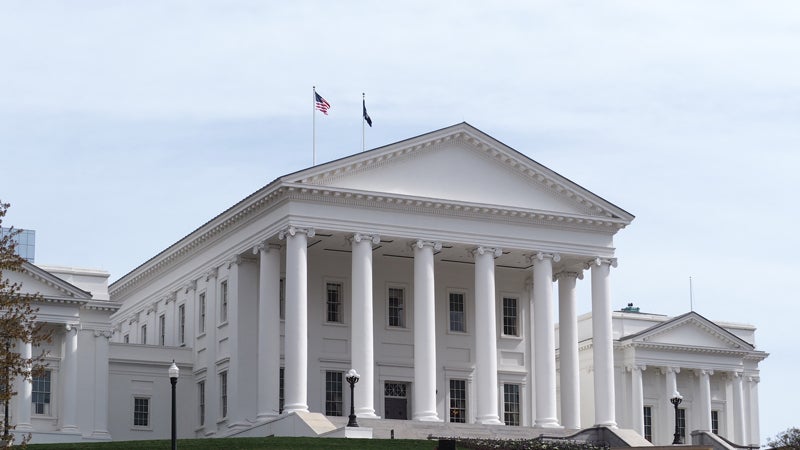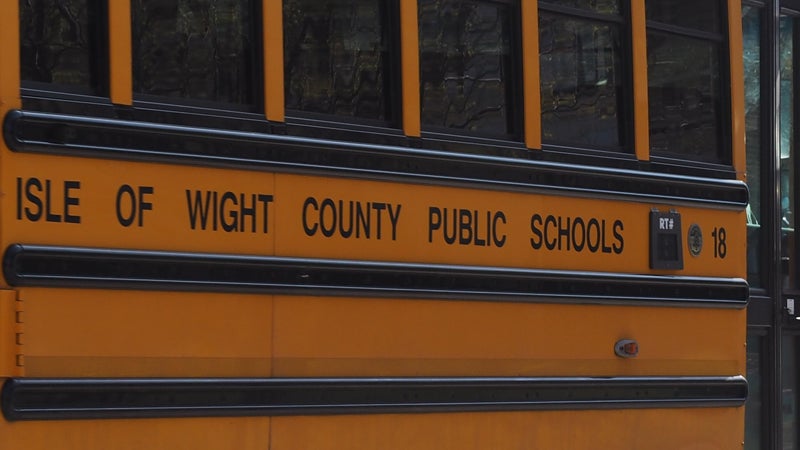Three senators revive ‘skill game’ legalization bill
Published 5:20 pm Tuesday, June 18, 2024

- Virginia State Capitol (File photo)
Three state senators again proposed legalizing so-called “skill games” a month after Gov. Glenn Youngkin vetoed similar legislation, but ended up not voting on any bills at a reconvened June 18 Senate session.
Youngkin vetoed Senate Bill 212, sponsored by Sen. Aaron Rouse, D-Virginia Beach, in May after the General Assembly voted down a slate of amendments Youngkin had proposed in April that would have kept the slots-style betting machines illegal throughout Isle of Wight and most of Surry counties.
Sen. L. Louise Lucas, D-Portsmouth, and Rouse are co-sponsoring Senate Bill 6008, which again proposes repealing a 2020 law that reclassified the pay-to-play machines that had become common sights in truck stops and convenience stores as illegal gambling. The bill would define skill games as those where “the skill of the player” rather than chance predominantly determines the outcome.
According to the Virginia Mercury, the June 18 Senate session ended with the body not taking up a single bill. Lucas announced the Senate Finance Appropriations Committee, which had been scheduled to take up the skill games bills and another proposing tuition-free college for some military families, wouldn’t be voting on either topic.
Lucas’ version includes language allowing counties and cities – but not towns – to opt out of legalization via a ballot referendum, which had been one of the rejected Youngkin amendments to SB 212. SB 6008 allows a referendum by resolution of a board of supervisors or city council, or by petition of at least 5,000 or 2.5% of registered voters, whichever is smaller.
A competing bill by Sen. Christie New Craig, R-Chesapeake, would impose a $1,200 monthly tax on each skill game machine from each distributor payable to a proposed “Virginia Gaming Commerce Regulation Fund” the bill would establish, with most revenue eventually funding K-12 education. New Craig’s bill, dubbed SB 6007 or the Virginia Gaming Commerce Regulation Act, would direct the Virginia Lottery Board to develop regulations no later than June 30, 2025, and like the Lucas-Rouse bill includes a provision allowing cities and counties to opt out by referendum.
Youngkin, in April, had also proposed language that would have explicitly prohibited skill game machines within 35 miles of any casino or racetrack, effectively maintaining the 2020 ban in most of Isle of Wight and Surry counties for their proximity to the Rivers Casino in Portsmouth and Colonial Downs in New Kent County. Neither of the new bills include this provision.
SB 6008 proposes a 25% state tax on skill game revenue and would prohibit localities from levying a separate local license, permit or sticker fee or tax on a skill game manufacturer, distributor, operator or host location. The bill would further cap the number of authorized skill game machines at 35,000 statewide and allow no more than four per store except in truck stops, which can have up to seven.
SB 6007 and 6008 each specify that host establishments would be required to cap the maximum wager per play at $5 and would be barred from using the term “casino” in their business name.
Isle of Wight began enforcing the 2020 ban in January after a three-year legal battle ended last fall with Virginia’s Supreme Court lifting an injunction against enforcement. Emporia truck stop owner Hermie Sadler, who ran against Sen. Emily Jordan, R-Isle of Wight, in 2023 Republican primary for her Senate seat, had sued the state in 2021 just as the ban would have taken effect, arguing it gave unfair advantage to the handful of casinos the state had authorized in Virginia’s larger cities. He’d secured the now-lifted injunction in Greenville County Circuit Court in 2022 with the help of his attorney, state Sen. Bill Stanley, R-Franklin County.
Jordan, who as a House of Delegates member in 2020 supported the ban, joined Sen. Lashrecse Aird, D-Petersburg, whose legislative district includes Surry, in a 34-6 bipartisan vote to send Rouse’s original legalization bill back to Youngkin without his proposed amendments.
The Virginia Merchants and Amusement Coalition, which had lobbied for SB 212’s passage, said in a June 18 news release that though the Senate Finance Appropriations Committee did not vote on either bill that day “we remain confident in our patrons and trust that they will come together on a resolution when they reconvene.”
“We want to thank Senator Lucas and Senator Rouse for their unwavering support, as well as Senator New Craig,” the release states, contending “Thousands of struggling small businesses are in jeopardy while skill games are off. We look forward to continuing to work toward a solution that supports small businesses.”
Editor’s note: This story was updated at 9:06 a.m. on June 19 with the outcome of a June 18 reconvened Senate session.





